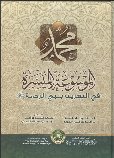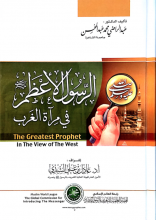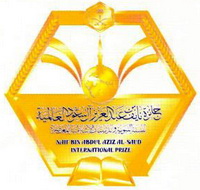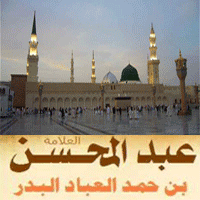مايو 2010
Why do we have to love the Prophet (peace and blessings of Allaah be upon him) more than any other person?
Question:
Why do we have to love, obey, follow and venerate our Prophet Muhammad (peace and blessings of Allaah be upon him) the most (or more than any other person)?.
Answer:
Praise be to Allaah.
1 – Allaah has commanded us to obey the Prophet (peace and blessings of Allaah be upon him). Allaah says (interpretation of the meaning):
It has become clear and self-evident that the battle between the Prophets and their adversaries was actually centered around this great pillar – the Tawhid of Allah, and singling Allah out with the entirety of worship acts. This battle was never about secondary juridical differences, or about elements of legal intricacies, or about an issue for independent judgment. Instead, we recognize that the laws of the Prophets themselves were numerous, each according to the time, place, and those addressed.
The orientalists allege that the Prophet (Peace and Blessings be upon him) was worried about the enmity of the non-believers in Makkah. In such a state of mind one day went to Kaba where he recited to the gathering of believers and non-believers Surah al-Najm 53 which is said to have been revealed at that time.
The allegation is that in the course of its recitation and when he uttered the verse 19-20 Do you see al Lat and al Uzza and the other third Manat? Satan threw in the couplet Those are the swans exalted; verily their intercession is to be expected.
REFUTING SOME OF THE INSINUATION OF THE ORIENTALISTS ON THE SIRAH
William Muir, one of the orientalists have made the wildest insinuation that the Prophet was, since his boyhood, a life long patient of epilepsy of falling disease with reference to the incident of Shaqq al Sadr. The insinuation originated with the Greeks and was then taken up by subsequent writers.
OBSERVATIONS
The orientalists allege that the Prophet (Peace and Blessings be upon him) was subject to the Judeo/Christian influence of his time and that the Quran reflects this influence. It was suggested that Muhammad (Peace and Blessings be upon him) had two big problems if he were to embrace Judaism or Christianity. If he becomes a Christian, he would be bringing in the Christian Byzantine regime to Mecca which will not be tolerated by his people in Mecca, and he could not pretend that he know more than the older members and priests of those two religions - Judaism and Christianity.
In the history of the Prophet (peace and blessings be upon him) there are various distinctive incidents and governing points which direct the Islamic nation in its path. These incidents and points are evident at the levels of victories and defeats, as well as at other levels.
As this question has generated a great deal of literature, I shall confine my answer to the most pertinent points.
This allegation is made by Orientalists, just as it was by their predecessors: Christian and Jewish writers who deeply resented the spread of Islam. The first people to make it were the Prophet's own opponents, as we read in the Qur'an:
[When Our clear revelations are recited to them, the Unbelievers say, of the Truth when it comes to them: "This is evident sorcery!" Or do they say, "He has forged it"?] (Al-Ahqaf 46:7–8)
The Qur'an's substance is a compelling argument for its divine authorship. Those who allege that someone wrote it provide no proof to support their assertion. Other Scriptures, due to human intervention, make claims that we know to be untrue. For example, they give a particular account of creation or of a natural phenomenon (for example, the Flood), which we know from modern scientific facts, such as fossils or astronomic discoveries, to be false.
By Sheikh. Sayed Qutb Egyptian Muslim Intellectual
Always Compassionate
[It is by Allah's grace that you have dealt gently with them. Had you been harsh and hard- hearted, they would surely have broken away from you. Therefore pardon them and pray for forgiveness for them and consult with them in the conduct of public affairs. When you have resolved about a course of action, put your trust in Allah. Allah loves those who put their trust in Him. ](Aal-`Imran 3:159)






.jpg)

